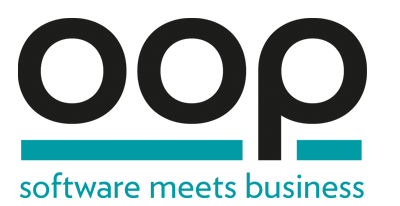Please note:
On this page you will only see the English-language presentations of the conference. You can find all conference sessions, including the German speaking ones, here.
The times given in the conference program of OOP 2024 correspond to Central European Time (CET).
By clicking on "VORTRAG MERKEN" within the lecture descriptions you can arrange your own schedule. You can view your schedule at any time using the icon in the upper right corner.
Track: Nightschool
- Montag
29.01. - Mittwoch
31.01. - Donnerstag
01.02.
Explore Agile Leadership in this interactive workshop. Delve into the adaptability of Agile Leadership, understand its context-dependency, and utilize our Leadership Assessment to gain insights into your leadership style. Strategize how to adjust your leadership behaviors for greater effectiveness within your team and organization.
Target Audience: Managers, Technical Leads, Scrum Masters, Agile Coaches, Software-Architects, Product Owners
Prerequisites: Basic Understanding of Agile, Team…
In this workshop, participants will roleplay fictive situations in groups of +/- 7 people.
- divided in groups
- everyone gets a random set of reaction cards (same as number of people in the group
- one person (disturber of the peace) selects a situation card
- the disturber acts out the situation
- everyone in the group selects a way to react and plays that.
- everyone gives their reaction card back
- disturber gives feedback about what the reactions do to them
- repeat until everyone has played a…
Henning (OO to the core) and Mike (ferociously FP) agree on all the fundamentals of software architecture, but when it comes to designing models, they can't seem to find common ground.
OO and FP folks like to congratulate themselves on how well they go together - and how OO languages are accreting one feature after another from the FP world.
Henning and Mike will highlight how OO and FP approaches to design differ, and offer possible approaches to unifying both for mutual gain and insight.
Targe…
Expanding horizons has many facets. It means taking advantage of new opportunities that arise from technical progress, such as Large Language Models, or societal challenges like Sustainability. Expanding horizons also means taking responsibility. AI and data analytics have a direct impact on our future life, good and bad. Expanding horizons also means reflection on existing practice. We have perhaps forgotten the benefits of structured monoliths, or have sometimes overdone it with agility, which…
Most engineers know that improving their presentation skills would be good for their career but feel naturally uncomfortable on stage. So how do you improve this skill? As a former opera singer turned software engineer, Anna McDougall runs regular public speaking workshops for her colleagues. In this session, she explains how to encourage your team (or yourself!), provides a demo coaching session with Software Engineer Ellina Nurmukhametova (who will present an AI quiz feature), and demonstrates…
In this session, we focus on the topic of software product management (PdM) and how PdM practices are rapidly changing. Together we explore and define how to do PdM for digital products as well as software-, data- and AI-intensive systems. Some questions we explore include:
- How to change current PdM practices to work with digital technologies and digital offerings?
- What is the future of PdM practices and what are the key characteristics of digital product management?
Target Audience: Product…
Sustainable success for agile in the large needs leaders to shift their focus from managing people to managing the system so that people can thrive.
This session builds on our successful OOP 2023 session ("Pragmatic Scaling to Business Agility: Crafting Organisations for Innovation where People can Thrive") by:
- Focussing on how leadership should be different in an agile organisation.
- Sharing experiences of applying the model with real clients.
Participants will assess their own leadership and…
Pecha Kucha erlaubt Sprecher:innen gerade mal 6 Minuten und 40 Sekunden. In dieser Zeit können sie mit exakt 20 Bildern, die genau 20 Sekunden eingeblendet werden, ihre Ideen - im wahrsten Sinne des Wortes - auf den Punkt bringen. Für die Zuhörer bedeutet dies: Kein zeitraubendes "Gelaber", dafür aber knackige und unterhaltsame Informationen. Freuen Sie sich auf eine bunte und unterhaltsame Auswahl von Vorträgen mit vielen inspirierenden Inhalten und Bildern!
- Energie! (Johannes Mainusch)
- Die…

